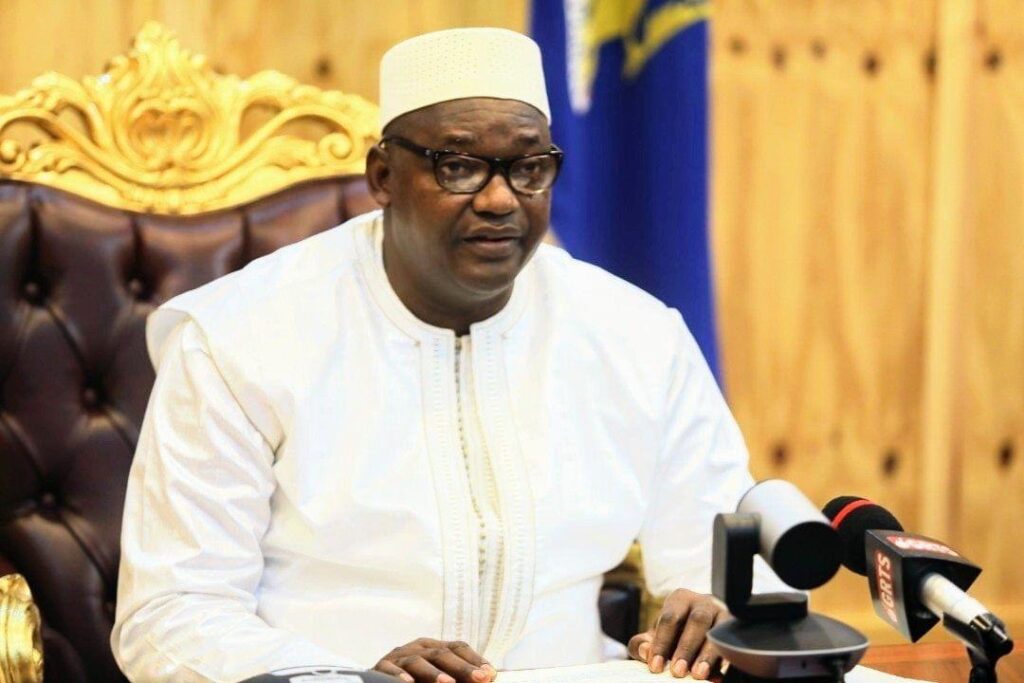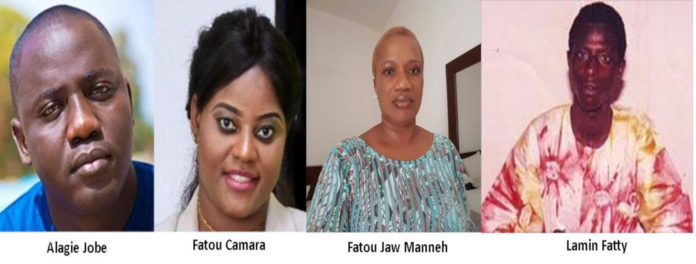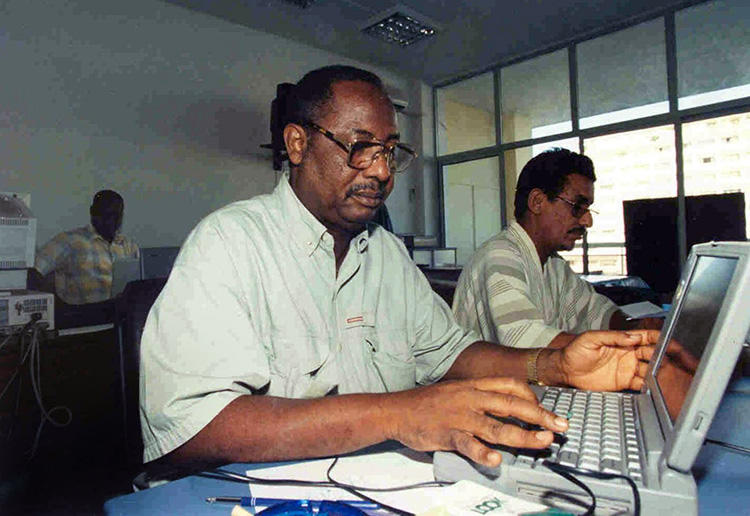
Gambian authorities should adopt the reforms recommended by the country’s Truth, Reconciliation, and Reparations Commission (TRRC)—including ensuring journalists are not prosecuted for sedition—work to swiftly hold former President Yahya Jammeh and members of his “Junglers” death squad to account for their crimes against journalists, and end the culture of impunity in the country, the Committee to Protect Journalists said Wednesday.
On May 25, Gambian authorities released a white paper on the findings and recommendations of the TRRC, which was established by the government of current President Adama Barrow in December 2017.
The commission’s main objectives were “to create an impartial record of violations and abuses of human rights” that occurred during Jammeh’s 22-year administration, promote healing, and “address impunity” to “prevent the repetition of the violations.”
After being voted out of office in 2017, Jammeh fled to Equatorial Guinea and claimed political asylum, and is protected by authorities there, according to Human Rights Watch.
Authorities accepted the TRRC’s recommendations that Jammeh should be investigated and prosecuted for the murder of journalist Deyda Hydara, the disappearance of journalist Ebrima Manneh, the arson attacks on Radio 1 FM and The Independent newspaper, and the attacks on journalists working with the Freedom Newspaper news website.
Manneh, a reporter for the Gambia-based newspaper Daily Observer, went missing on July 7, 2006, after he was arrested by National Intelligence Agency officers wearing plain clothes, as CPJ documented. His body was found by police officers 11 years later.

Gambian authorities declined TRRC’s recommendation to decriminalize sedition, writing that the law is a “necessary part of a nation’s security” if it is not “misused or abused by governments to curtail media freedom,” according to the paper, which added that the government would take steps to provide a “clearer definition” of sedition.
In 2018, a ruling by the Court of Justice of the Economic Community of West African States (ECOWAS) directed Gambia to “repeal and /or amend” its law on sedition as well as other laws that it found violated the rights of journalists.
CPJ and other rights groups submitted an amici curiae brief in that case and previously documented the prosecution of journalists under Gambia’s sedition law.

“The decision by Gambian authorities to accept most of the recommendations from the Truth, Reconciliation and Reparations Commission is commendable but also requires immediate action to halt the decades of impunity for the killings of journalists Deyda Hydara and Ebrima Manneh, and other crimes against the press,” said Angela Quintal, CPJ’s Africa programme coordinator, from Johannesburg.
“The administration of President Adama Barrow should recognize how Gambia’s sedition law threatens freedom of the press and prioritize legal reforms that ensure journalism is not criminalized.”
The Gambian government accepted TRRC’s recommendations to reform the criminal code and other laws that criminalize the press, according to the paper and Fatau M. Jawo, a lawyer and human rights advocate who spoke to CPJ by phone.
Most notably is the 2013 Information and Communications (Amendment) Act, which imposes a 15-year jail term and a 3 million Dalasis (US$56,000) fine on those convicted of spreading false news or derogatory statements against government officials, as CPJ has documented.
The paper also acknowledges the “great lengths” that Jammeh went to in order to attack the media and formally recognized several incidents, including the murder, “torture,” and arbitrary arrests and detention of journalists, most of which CPJ has documented:
• The murder of Deyda Hydara, the managing editor and co-owner of the independent newspaper The Point and a correspondent for AFP and Reporters Without Borders.
• A potential role in the disappearance of Ebrima Manneh
• The closure of privately owned Citizen FM radio
• The closure of Senegalese private radio station Sud FM
• The closure of the independent Taranga FM radio station
• Disruption of internet access
• Deportation of at least seven foreign journalists and “making conditions for foreign journalists [so] untenable that many left the country”
• The arrest of seven journalists and press leaders: Pap Saine, Alieu Badara Sowe, Bruce Asemota, Emil Tourey, Sarata Jabbi, Pa Modou Faal, and Sam Sarr.
Bafou Jeng, a senior counsel at the Gambian ministry of justice, declined CPJ’s request for comment and recommended that questions be directed to Kimbeng Tah, the ministry official responsible for handling TRRC activities. CPJ emailed Tah but did not receive a response
(By CPJ)










Recent Comments